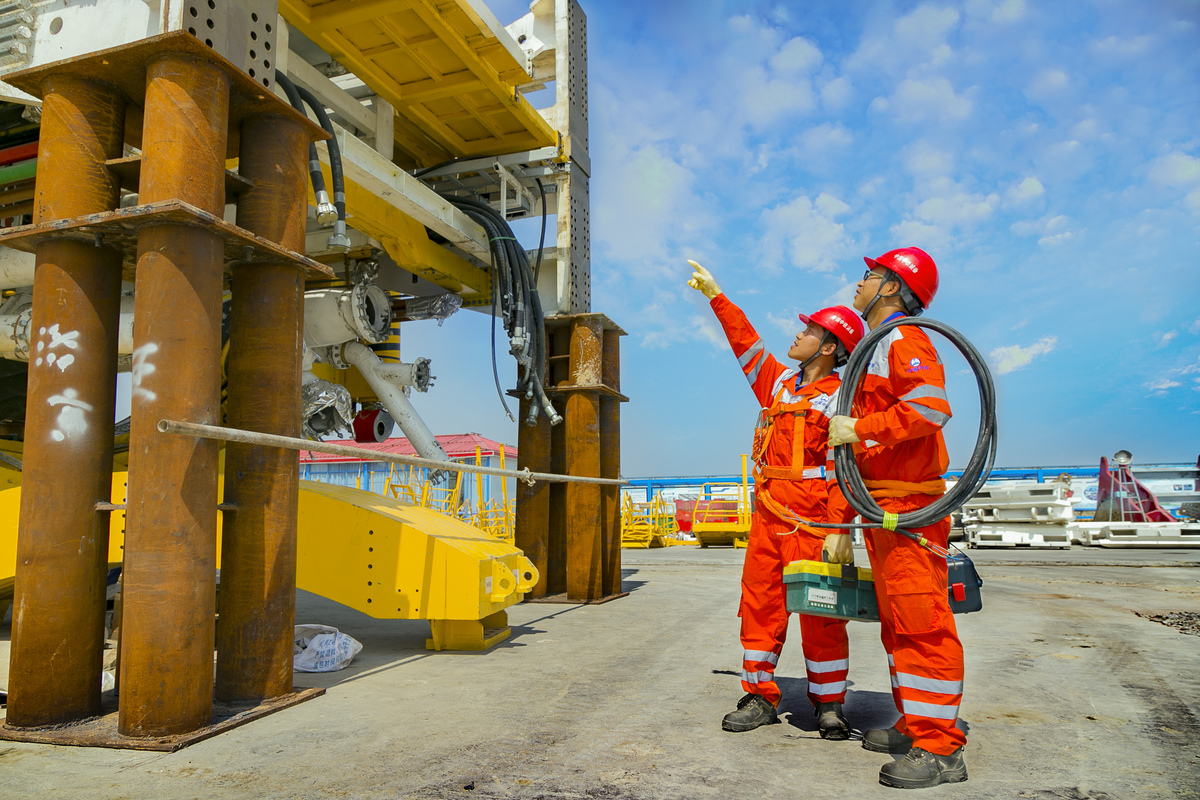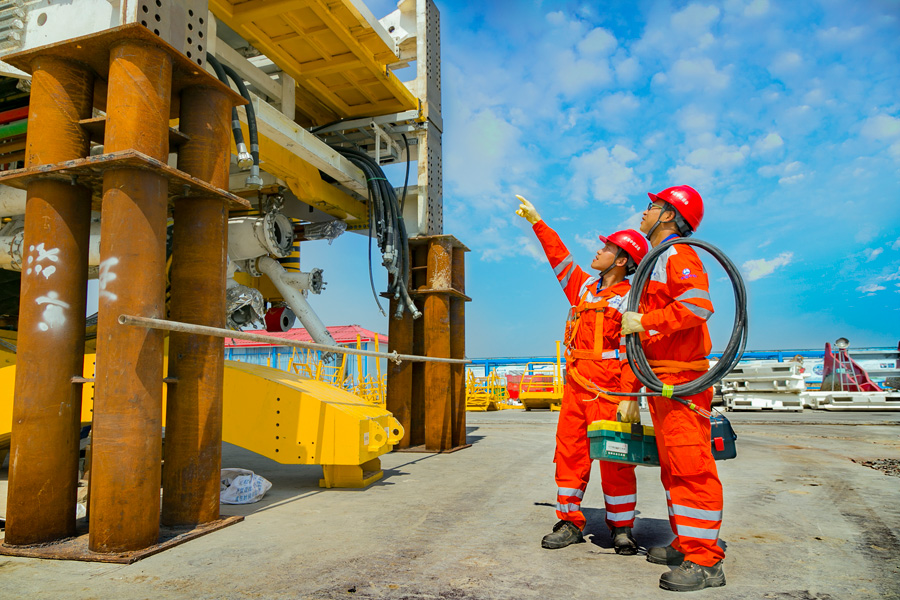Helping build world's high-tech network
By Zhong Nan | China Daily | Updated: 2019-01-21 09:49

China Railway Group's unit CRHIC rides BRI to exploit its strengths in heavy machinery
China Railway Hi-Tech Industry Co Ltd, a State-owned company that makes tunnel-boring machines, steel bridge structures, and rail turnouts, is racing to compete with other established competitors in the world.
A subsidiary of State-owned China Railway Group Ltd, CRHIC is banking on economies participating in the Belt and Road Initiative to drive growth.
CRHIC supplied two earth pressure balance shield machines to the United Arab Emirates for the Expo Dubai 2020 in July. With help from its partners, it has also completed the construction work for the Halogaland Bridge near Norway's northern port city of Narvik in December.
The Halogaland Bridge is Norway's second-longest bridge with a total length of 1,533 meters and a main span of 1,145 meters. It is also the longest suspension bridge in the Arctic Circle region, located 220 km from the circumference.
The contract includes preproduction of all the parts-cables, steel boxes and site construction. The production of steel parts was carried out in one of CRHIC's four factories in China.
Yi Tiejun, chairman of CRHIC, said opportunities come from many countries' growing demand for infrastructure upgrade and energy development projects, especially in fastgrowing markets such as Vietnam, Indonesia, Israel and many African nations.
Such countries are focused on sustainable development against a backdrop of urbanization and industrialization. Their services and communication sectors are either upgrading or growing rapidly too, he said.
In addition to developed markets, the Beijing-headquartered CRHIC has exported its self-developed bridging and rail paving machines, heavy flatbed trucks and handling machines to Zimbabwe, Gabon, Kenya, Ethiopia and other African countries, to help in their projects related to railway, light rail, water conservancy, housing construction, and other infrastructure projects.
Yi said China's latest actions in supporting multilateralism and deep involvement in the BRI will help facilitate trade in both goods and services, infrastructure construction in many parts of the world, and stronger connections with China.
So, CRHIC has set up branches in Singapore and Germany over the past two years. Supported by over 12,000 employees, it plans to open offices in Europe and Australia over the next three years, build sales networks, and team up with local dealers. Besides, it would bid for more overseas projects, especially in countries and regions participating in the BRI

As China is witnessing a boom in industrial upgrade, many companies are deploying their resources and manpower to develop high value-added products across industry chains. In line with this trend, the development of a range of high-end tunnel-boring machines has become a core business for CRHIC in recent years. The company has shipped its tunnel-boring machines in different shapes to 16 countries, including Malaysia, Singapore and Lebanon.
"We have seen the need and opportunities for specifically designed tunnel-boring machines, such as equipment that can be applied in urban, mountainous and desert areas, for transportation and hydropower projects," said Li Jianbin, general manager of CRHIC.
CRHIC is using six tunnel-boring machines for building the redline project of Tel Aviv Light Rail. The project began its digging work in Ramat Gan, a district in Tel Aviv, in February 2017.
Tunnel-boring machines arrived in Tel Aviv after they were assembled at the excavation machine industrial center in the city. Each 115-meter-long machine has a diameter of 7.54 meters, consisting of 100,000 components.
The order was received in 2015 when a consortium formed by Chinese companies, including CRHIC and China Railway Engineering Equipment Group, and their Israeli partners, won the tender to build two tunnels, six underground stations and 16 cross passages in the western section of the red line.
This is the first overseas contract for any Chinese company to construct a light rail line. It is estimated that the project will be completed by 2021.
Sun Fuquan, a researcher at the Chinese Academy of Science and Technology for Development in Beijing, said Chinese companies still have more options to further diversify their market channels overseas, given globalization's acceleration.
"China's proposal to explore third-party market cooperation can generate rich financial returns for both developed and developing countries involved in the BRI, without causing a clash of interests," he said.
Thanks to the strong growth momentum from its strengths in tunnel-boring machines, bridge building and construction machinery in both domestic and overseas markets, CRHIC saw its profit surge almost 20 percent year-on-year to 1.08 billion yuan ($157 million) in the first three quarters of 2018, from a revenue of 11.9 billion yuan, up some 4 percent year-on-year.
























